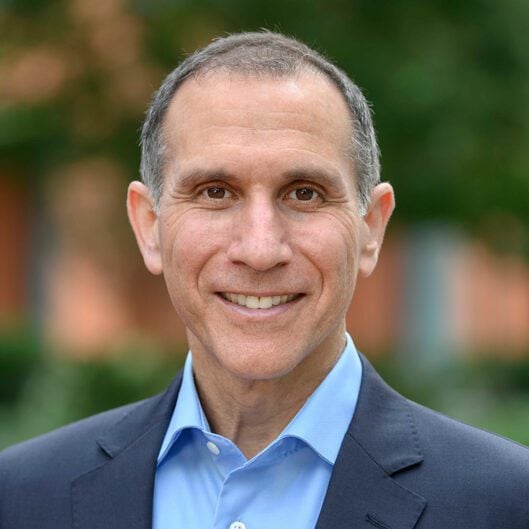For Dr. Volkan Granit, the path to ALS research wasn’t linear—it was shaped by a blend of scientific curiosity, clinical dedication, and serendipity. Originally from Istanbul, Turkey, Volkan completed his medical training there before moving to the U.S., where he immersed himself in neuroscience research for over four years. “When you spend that much time in neuroscience, going back to clinical work, I wasn’t exactly going to do gynecology,” he joked, reflecting on how naturally neurology became his calling. Drawn by the logic and precision of the field—“if you block this part of the brain, this is what doesn’t work”—Volkan found satisfaction in unraveling the mysteries of the nervous system.
Transitioning Into ALS Research
His transition into ALS was less planned but no less impactful. After starting his neurology career focused on muscle diseases and myasthenia gravis at Montefiore Medical Center in New York, he was recruited in 2017 to the University of Miami, home to one of the country’s largest ALS programs. There, under the mentorship of Dr. Michael Benatar, Volkan’s clinical and research interests gravitated toward ALS. He eventually served as the medical director at the university’s multidisciplinary ALS clinic, deepening his connection to both the disease and the people it affects. However, the emotional toll of full-time ALS care led him to adjust his focus, balancing clinical work with research and a role in biotech at Biohaven. “I did not do a good job dissociating the realities of the clinic from my personal life very well,” he admitted candidly, reflecting on the deep bonds he formed with his patients. “Sometimes, when their disease progresses, you feel as if you have not done your job well. I chose to mitigate that by contributing through more research and less clinical care.”
Crossing Paths with Target ALS
It was after his move to Biohaven—where his participation in ALS clinical trials like the Healey Platform Study transitioned from a site investigator to a biotech researcher— that Volkan crossed paths with Target ALS. Introduced by a colleague, he soon became involved with the organization’s Independent Review Committee (IRC), a role that he views as both a professional privilege and a personal mission. “Part of it is about being a good citizen in the field,” he said. “But honestly, it’s also because Target ALS is unique. It facilitates collaboration between biotech, the pharmaceutical industry, and academia in a way that’s rare. I have my feet in both worlds, so that really resonates with me.”
Unlike more traditional scientific review panels, the IRC operates with a dynamic, nimble structure that fosters cross-disciplinary exchange. “It’s less bureaucratic, more agile,” Volkan explained. “There’s this incubation of academia with industry, and what’s really unique is how Target ALS enforces collaboration. It’s not just encouraged—it’s built into the DNA of the grants and programs.” This collaborative spirit extends beyond just funding decisions. As Volkan described, reviewing applications isn’t just another task on his to-do list; it’s an opportunity to learn, stay connected, and engage with the latest developments in ALS research. “It’s a really good incubator,” he said. “You hear from colleagues with different sub-expertise—clinicians, basic scientists, neuroscientists. It keeps me updated, connected, and I like that effort.”
What Makes Target ALS Unique
What sets Target ALS apart from other organizations, in Volkan’s view, is its unique position in the ALS ecosystem. While other groups focus on advocacy and clinical care, and academic consortia drive basic research, Target ALS sits at the intersection, acting as a catalyst that bridges gaps between discovery and therapy. “Target ALS’s role is unique in research and development,” Volkan emphasized. “They support basic research, clinical research, and the translation of that research in a way that’s complementary to other organizations. They’re not competing—they’re filling a critical piece of the puzzle.”
Despite the inherent challenges of working in a field where progress can feel painfully slow and emotionally taxing, Volkan remains hopeful. The exponential growth in ALS knowledge, driven by advances in molecular biology, genetics, and clinical research, fuels his optimism. “Although there’s been tremendous amounts of failure in ALS research, the understanding of biology is growing exponentially,” he said. “There’s huge potential.”
A Commitment to Science and Humanity
For emerging scientists and clinicians considering a career in ALS, Volkan’s advice is both candid and inspiring. For researchers, he highlights the vast opportunities to make meaningful contributions as the field rapidly evolves. For clinicians, he offers a more personal reflection: “Managing ALS is hard. It takes a toll on you. But it’s incredibly valuable because you’re providing hope to people who aren’t given much hope. People with ALS see you as their primary caregiver in the most real sense.”
At the heart of Volkan’s journey is a commitment to both science and humanity. His work with Target ALS’s IRC reflects not just a professional role but a belief in the power of collaboration, curiosity, and compassion to drive change. “I’m very happy if I can even make a tiny contribution,” he said humbly. In reality, his contributions are anything but tiny—they’re part of a collective effort to push the boundaries of what’s possible in ALS research and care.




